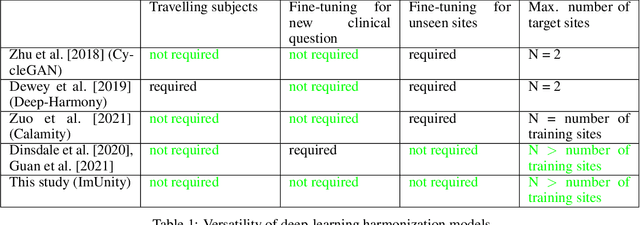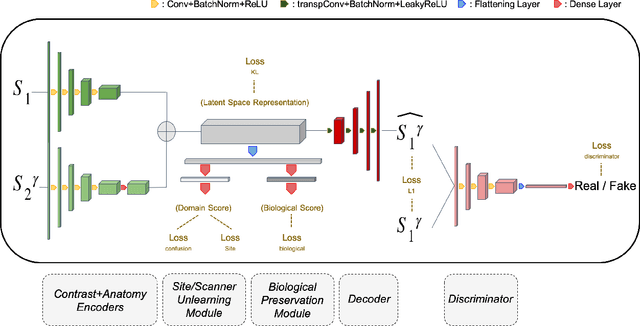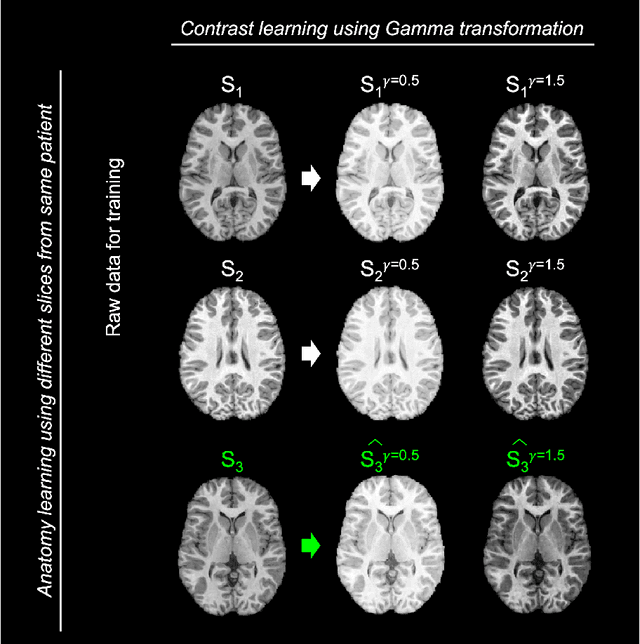Stenzel Cackowski
ImUnity: a generalizable VAE-GAN solution for multicenter MR image harmonization
Sep 14, 2021



Abstract:ImUnity is an original deep-learning model designed for efficient and flexible MR image harmonization. A VAE-GAN network, coupled with a confusion module and an optional biological preservation module, uses multiple 2D-slices taken from different anatomical locations in each subject of the training database, as well as image contrast transformations for its self-supervised training. It eventually generates 'corrected' MR images that can be used for various multi-center population studies. Using 3 open source databases (ABIDE, OASIS and SRPBS), which contain MR images from multiple acquisition scanner types or vendors and a large range of subjects ages, we show that ImUnity: (1) outperforms state-of-the-art methods in terms of quality of images generated using traveling subjects; (2) removes sites or scanner biases while improving patients classification; (3) harmonizes data coming from new sites or scanners without the need for an additional fine-tuning and (4) allows the selection of multiple MR reconstructed images according to the desired applications. Tested here on T1-weighted images, ImUnity could be used to harmonize other types of medical images.
 Add to Chrome
Add to Chrome Add to Firefox
Add to Firefox Add to Edge
Add to Edge